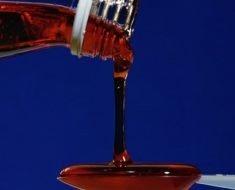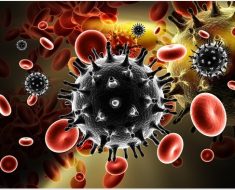Trans fat is a type of fat that can be produced when saturated fats are manufactured from unsaturated vegetable oils through a process of hydrogenation. They do not commonly occur in nature and their consumption is associated with significant health risks.
As a result of health concerns, consumer awareness of trans fat has grown and demands for healthier options have risen. Additionally, government enforced regulations have been introduced to minimize the consumption of the fats by the public.
The food industry has responded to the demands for healthier fats in commercial food products by using alternatives and reducing the quantity of trans fat in food.
Substitution of Trans Fat by Manufacturers
When it became clear to manufacturers of trans fats that the public desired healthier fat choices and to avoid the consumption of trans fat, it became necessary for them to find new ways to produce their products.
Finding alternatives to use as a substitute for trans fat was a direction that many food manufacturers took. Palm oil, naturally extracted from palm tree fruit, appeared to be a suitable option, as it has similar properties to partially hydrogenated vegetable oil such as being semi-solid at room temperature.
However, a study by the National Institutes of Health and the USDA Agricultural Research Service published in 2006 found that palm oil was not an ideal substitute for partially hydrogenated fats. In fact, consumption of palm oil was found to result in similar effects to consumption of trans fat, including raising LDL cholesterol and apolipoprotein B.
The manufacturer of Crisco reformulated the product in 2004, substituting partially hydrogenated vegetable shortening for a blend of saturated palm oil, soybean oil and sunflower oil. This produced similar physical properties and results to the original brand but could be labeled to contain 0 g of trans fat. Once again, this was discontinued and in 2007 the product was reformulated a second time to contain less that 1 g of trans fat per serving.
Reducing Trans Fat By Suppliers
Major food chains have also faced the issue of using trans fat in the production of their food and have responded to health implications by reducing their use. In some cases this has been a voluntary action but there have also been several enforcements carried out after legal action.
BanTransFats.com is a non-profit corporation that was founded in the United States in 2003. They were influential in the publicity of the health effects of trans fats and were involved with lawsuits that forced large food manufacturers to remove trans fats from their products. A notable case involves the Oreo cookie made by Kraft, who eventually agreed to substitute trans fats as a response to the lawsuit.
The fast food chain KFC also experienced legal action and were sued over their use of trans fats by the Center for Science in the Public Interest in 2006. Although they took some time to find a suitable substitute to maintain the “unique taste and flavor of Colonel Sanders’ Original Recipe”, it eventually made the change to use linoleic soybean oil that is free from trans fat.
Several other major food chains have also made progressions towards the elimination of trans fat in their recipes; among these are Wendy’s, Taco Bell, Burger King and McDonalds.
References
- https://www.federalregister.gov/articles/2013/11/08/2013-26854/tentative-determination-regarding-partially-hydrogenated-oils-request-for-comments-and-for#h-12
- http://www.sciencedaily.com/releases/2009/05/090502084827.htm
- http://www.nytimes.com/2006/06/14/us/14fat.html?ex=1307937600&en=01d0b7b6b5c00eb6&ei=5088&partner=rssnyt&emc=rss&_r=0
- http://www.cspinet.org/new/200606121.html
- http://usatoday30.usatoday.com/money/industries/food/2006-11-29-arbys-transfat_x.htm
- http://bantransfats.com
Further Reading
- All Trans Fat Content
- What is Trans Fat?
- Trans Fat History
- Trans Fat Chemistry
- Trans Fat Nutritional Guidelines
Last Updated: Aug 23, 2018

Written by
Yolanda Smith
Yolanda graduated with a Bachelor of Pharmacy at the University of South Australia and has experience working in both Australia and Italy. She is passionate about how medicine, diet and lifestyle affect our health and enjoys helping people understand this. In her spare time she loves to explore the world and learn about new cultures and languages.
Source: Read Full Article





